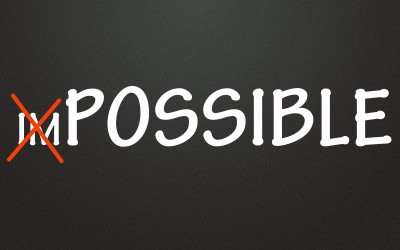Eleanor Roosevelt Understood Inside-Out
 Long before Sydney Banks shared what he learned about the nature of life, there were plenty of people who listened to their innate wisdom. Eleanor Roosevelt was one of them.
Long before Sydney Banks shared what he learned about the nature of life, there were plenty of people who listened to their innate wisdom. Eleanor Roosevelt was one of them.
During WWII, when women were keeping the factories going, Eleanor set up a system of national daycare centers that also provided hot meals for women to take home at the end of the day. She encouraged women to enter the field of journalism by inviting only female reporters to her press conferences. When presidential historian Doris Kearns Goodwin was asked “Who is the ultimate badass woman?” she chose Eleanor.
Eleanor had lots of wisdom and common sense – just as we all do – and she didn’t let a lot of thinking drown it out. Check out these three quotes – they clearly illustrate her understanding of the power of thought.
“I’m so glad I never feel important, it does complicate life!” She realized there’s no value in having a lot of thought about yourself, good or bad. She highly valued curiosity. She looked for what she didn’t know and saw life with a sense of humility.
“No one can make you feel inferior without your consent.” Eleanor understood that feelings come from thought, thought that she could accept or let go. This belief gave her the courage to take risks and stand up for what she thought was right in a time when women were often not taken seriously.
“They’re not really criticizing me; they just don’t like my ideas.” How different would the world be today if people were able to understand different perspectives and beliefs and not take things personally? Eleanor was able to see beyond the criticism and look to understand the person. Can you imagine the outcome if she got defensive and emotional when people pushed back on her ideas?
We’ve all had “Eleanor moments” when we feel bulletproof and badass, but unless we understand where our feelings really come from, we chalk those moments up to something other than our own thinking.
Here’s all we need to remember to embrace our inner badass:
- We have incredibly powerful minds, built for success. We are always evolving and growing thanks to a limitless flow of new thought.
- Our minds only work one way – inside-out. We are not at the mercy of our circumstances. We’re always just one thought away from seeing something helpful and new.
- We’re always feeling our thinking – whether we realize it or not.
There’s nothing to do! It’s just how it works. Like Eleanor, we have built-in badassery!

 Although you vowed that this year would be different and charged into 2016 with the best of intentions to take control of your life, you’re right back where you were before the holidays. Overwhelmed. Overworked. Overscheduled. Most days you dread going to work because you just don’t see yourself making any progress. If one more perky person smiles and says “It is what it is,” you’re going to scream.
Although you vowed that this year would be different and charged into 2016 with the best of intentions to take control of your life, you’re right back where you were before the holidays. Overwhelmed. Overworked. Overscheduled. Most days you dread going to work because you just don’t see yourself making any progress. If one more perky person smiles and says “It is what it is,” you’re going to scream.







